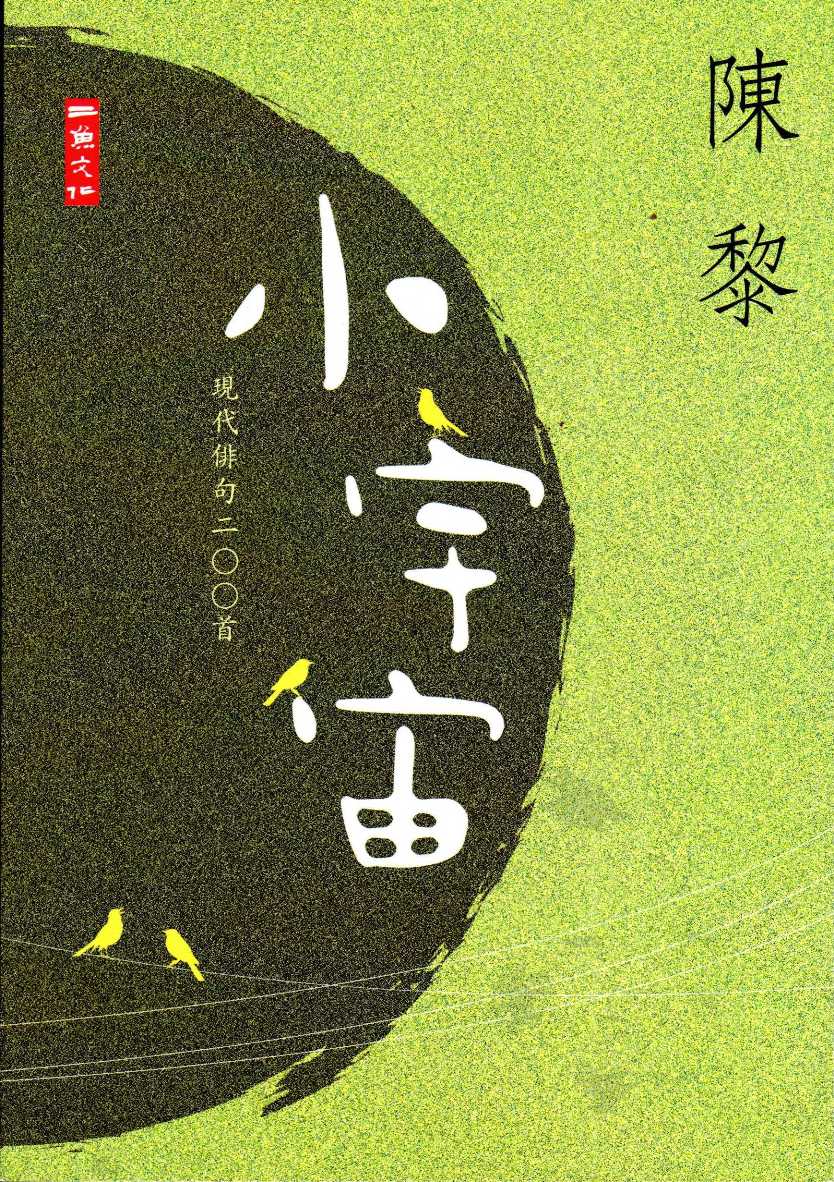[8] From
Microcosmos II
(2005-2006)

Books of His Poems
On His Works Home
[1]
[2]
[3]
[4]
[5]
[6]
[7]
[8]
[9]
Selected Poems of Chen Li
Translated by Chang Fen-ling
[8]
From
Microcosmos II
(2005-2006)

1
Live broadcast—
Mom called to ask:
will you come home for dinner?
2
Chirping competition:
zero-year-old old cicadas teach zero-year-old
baby cicadas to sing Happy Birthday
3
Love
Death: a three-legged race
relayed by all generations across all ages
Love
4
Two bodies,
with cliffs on four sides:
desolate love scenery of
a woman with a woman
7
The unbearable lightness
of dreaming:
the weightless pressing of the
round breasts
of the
lover who is gone
8
Great fleeing: let me hide inside
you, like water melting in water, seen
by the world, found by no one
12
The ocean at Dawu, seen from the train window, was a
cool blue
cake laid flat and neat. The moment the train moved,
the ocean
became a transparent fridge semi-trailer for
food delivery
16
Pillowing on two books, lying on the floor
one hot night, pondering on words with legs bent and
knees swaying,
I am the first haiku in this summer
21
Having breakfast out with my 70-year-old mom:
in the salad sauced with sunshine
are her 17-year-old smiles
22
Fire engines lined up motionless before him:
nobody noticed the blazing fire inside the man
seated in the teashop before the fire brigade
23
Behind the bra, her half-naked breasts
are like palpitating vowels bulging in the mouth.
They escape the lips because of your exclamation
25
A rolling dice in the empty bowl of the night
turns on a seventh side:
oh God, you do exist
26
Mango-cake moon:
generous enough to shed sparks of crumbs for
separated lovers to eat at once in different places
27
Seeing Mom in the teashop frequented by youths
I stared at her incredulously. My friend, sitting
opposite me, asked, "Which belle are you looking at?"
30
While listening, she fell asleep at the
other end
of the line, leaving me alone
trapped in the tangled coils of her
breaths
33
Serving and cleaning the table so nimbly
the waitress didn't know how hard it was to
wipe off your greasy gaze upon her glossy arms
45
Love is simply hanging on the tree
Love is simply hanging on the breasts
Come and get it, o lover boy
46
Bunun, Bunun…We are a bee box that makes
droning sounds, a beehive in which honey is made
with harmony, blocked yet bouncy vocalic choral.
Author’s Note: The Bunun are a tribe of Taiwanese aborigines.
They are best-known for their polyphonic vocal music.
47
Your voices suspend in my room
cutting through silence, to become
a bulb speaking with heat or chill
48
……
。
,
52
Love, or alas?
I say love, you say alas; I say
alas, alas, alas, you say love’s lost,
alas!
57
Pulling over to the roadside, I lay down to see the blue sky
beyond
the nose.
A small bug stopped on my nose tip as if
on a peak: my body was a mountain range of my hometown
58
Ah man, come and
take
a selfie:
encaged
60
Let Basho write his haiku, walk on his
Narrow Road to the Deep Interior: my Basho
chooses to write your deep narrow interior
Author’s Note:
Matsuo Basho (1644-1694), the Japanese haiku master,
wrote Narrow Road to the Interior (Oku no Hosomichi) in the form of a
travel diary.
63
There's a wound in the little finger. I can't pick my nose
The stars tonight are just like dots of nose excrement
stuck in the dark nostril, refusing to fall
64
The morning violent earthquake shook away Mom's
pearl earrings on the dresser. The afternoon violent
earthquake shook Mom's lost pearl earrings back
66
An earthquake tumbled down the huge wall of the prison.
Prison breakers, still at large, major or minor, included
two hounds, seventy mice, and eighty-six cockroaches
69
Who comes first: the universe? the emperor? God?
death? G cup? eating?—
I will go move the bowels first
71
Passing by the human world, gods danced and reveled by fits
Too high, their high-heeled shoes disabled them
from seeing the bitter sights of the earthquake under their feet
72
Because of gods' absence, humans invent myths.
Because death is larger than life, we have stories
of
ghosts. Please say something human—"Fuck!"
75
Years later I reknocked at your heart, saying Open Sesame. All the
food has been deleted from your word bank. I replace in vain
the key words: black sand, baby, sorry, love me...
81
A newly-passed family violence law for nightingales:
Never say "I no longer hunger for you"
with too strong a voice
92
I emailed to Great-grandma, who never kept a digital mouse,
talking about love and death: she sent back (and asked me to
forward it)
the most ancient email written with lightning
93
Mom said we'd dine out on New Year's Day, with
my home-coming brother. We dined out and looked
outside the window: the shiny lawn, the floating clouds
97
Twisted metaphors, unethical
ethics: benevolent
love of poetry
98
Offer Death a one-night stay in your pocket
to experience your curiosity and timidity about him:
he can try the food and the bed, but it's not formally open yet
100
I'll minimize my poetic form, making it
smaller than a disc, bigger than the world
a replicable and rewritable microcosm
→
《小宇宙 II 》中文原詩Books of Poems by Chen Li
In Front of the Temple Animal Lullaby
Rainstorm
Traveling in the Family
Microcosmos
The Edge of the Island
The Cat at
the Mirror
Microcosmos II
New Poems
Introduction to Chen Li's Poetry
by Chang Fen-ling